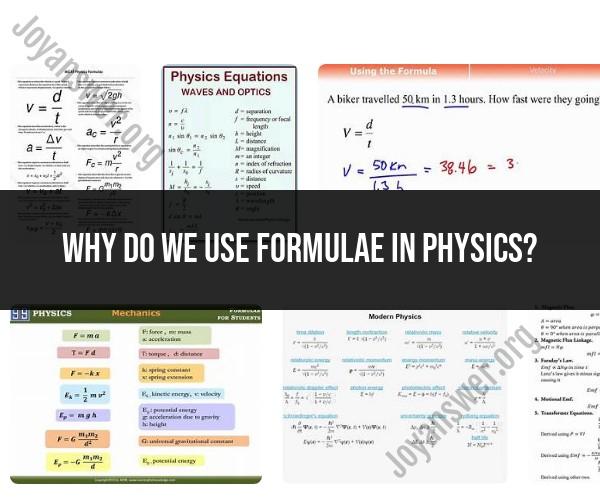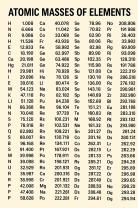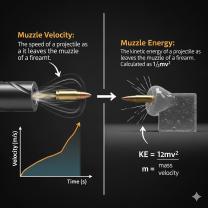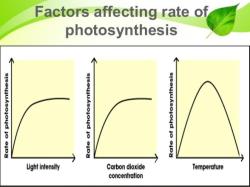Why do we use formulae in physics?
Formulas play a crucial role in physics for several reasons:
Mathematical Representation: Physics deals with understanding and describing the behavior of the physical world using mathematical models. Formulas provide a concise and precise mathematical representation of physical phenomena, allowing scientists and researchers to express relationships between different variables and quantities.
Predictive Power: Formulas allow physicists to make predictions about how physical systems will behave under various conditions. By applying known formulas to real-world situations, they can forecast outcomes, which is essential for engineering, technology, and scientific research.
Quantitative Analysis: Physics seeks to quantify and measure physical phenomena. Formulas enable scientists to perform quantitative analysis by providing a means to calculate and measure physical properties, such as speed, force, energy, and temperature.
Consistency and Reproducibility: Formulas provide a consistent and standardized way to describe physical concepts and principles. This consistency allows researchers to communicate their findings effectively and ensures that experiments can be reproduced and verified by others.
Problem Solving: Formulas serve as tools for problem-solving in physics. They help physicists analyze complex problems and break them down into smaller, solvable components. Formulas provide a structured approach to tackling various physical problems.
Generalization: Many physical principles can be generalized using formulas to apply to a wide range of scenarios. For example, Newton's second law of motion (F = ma) applies to any object with mass and acceleration, making it a versatile formula in mechanics.
Understanding Relationships: Formulas reveal relationships between different physical quantities. By examining how changing one variable affects another in a formula, physicists gain insights into the cause-and-effect relationships governing the physical world.
Verification of Theories: Scientific theories are often tested and verified through experimentation. Formulas derived from theories can be used to make predictions about experimental outcomes. If the experimental results match the predictions, it provides evidence supporting the theory's validity.
Education and Communication: Formulas are essential for teaching and learning physics. They provide a concise way to convey physical principles and concepts, making it easier for students to grasp fundamental ideas and perform calculations.
Technological Advancements: Physics formulas have played a significant role in the development of technologies that shape our modern world. Engineers and inventors use these formulas to design and create devices, machines, and systems that benefit society.
In summary, formulas in physics are indispensable tools that facilitate the understanding, analysis, prediction, and communication of physical phenomena. They provide a common language for physicists, engineers, and scientists to describe and manipulate the physical world, leading to advancements in science and technology.













